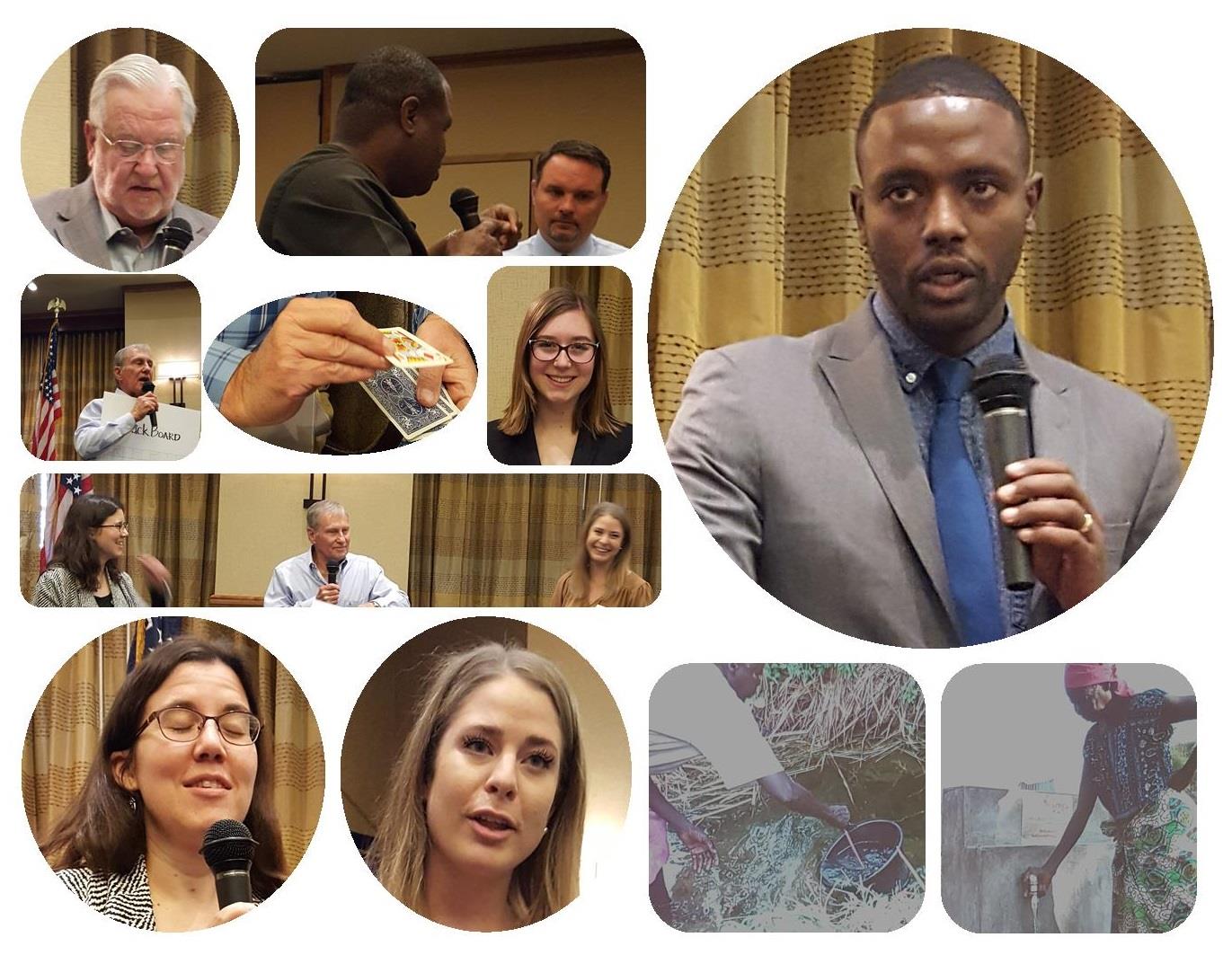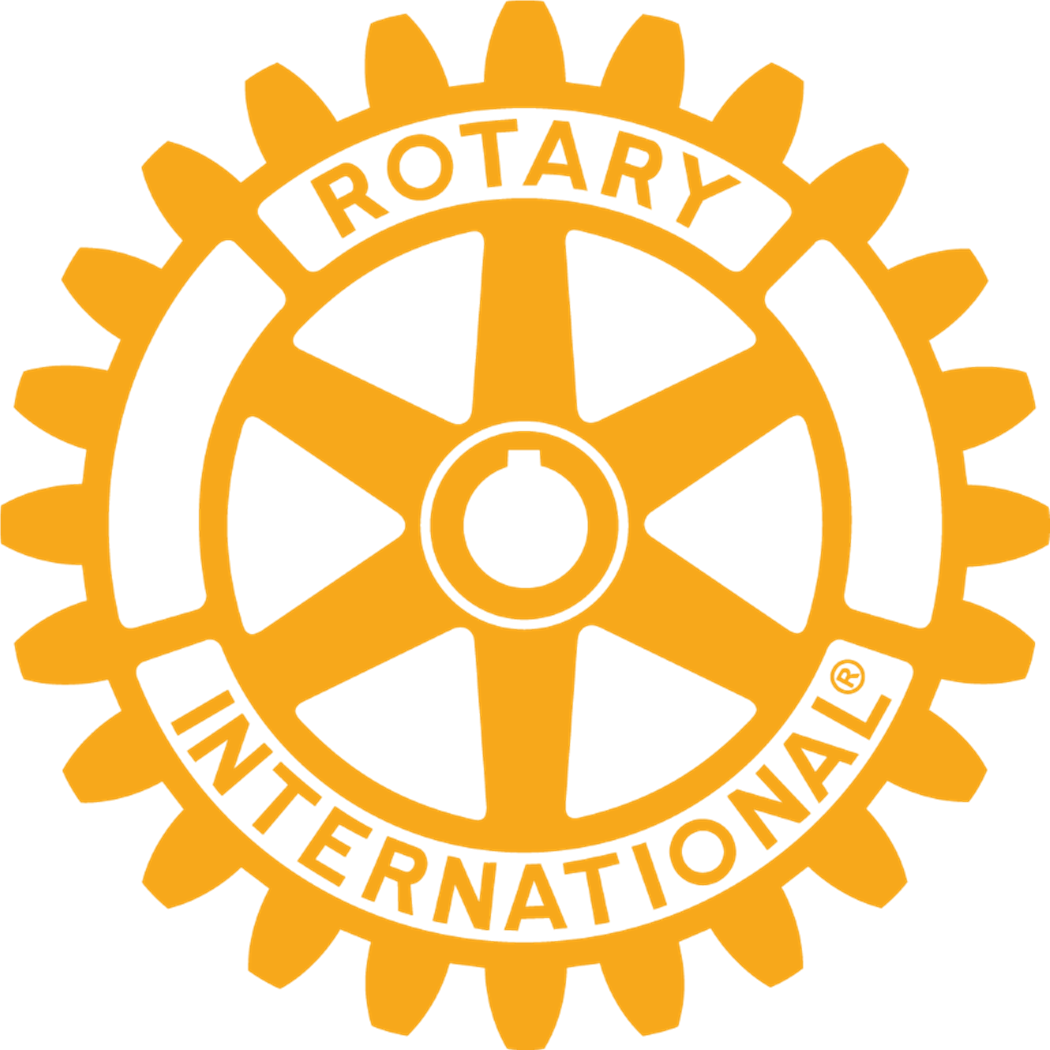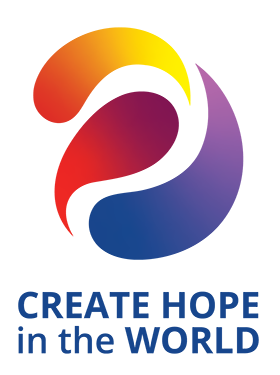 President Allan Cady opened the meeting with John Eagleston offering the invocation and Tim Tory leading the Pledge of Allegiance.
President Allan Cady opened the meeting with John Eagleston offering the invocation and Tim Tory leading the Pledge of Allegiance.Brian Goetzenberger introduced their daughter, Paige, who was attending specifically to hear the program. She was active in starting an action group at her school, "Freshmen for Fresh Water." Lucinda Rose General introduced Diana Atkins, telling "she is a coach." Wendell Jones introduced his wife, Carolyn. Penny May introduced Chuck from the White Bear Rotary Club. Don LaBarge introduced Bert Millett, a former member who has recently started his own law firm. He also introduced Immanuel Beeson with the Salvation Army as a potential member. Bob, the new Community Manager at Leisure World was also attending as a guest.
President Allan continued his commitment to encourage members to wear their Rotary pins by paying $1 for each Rotarian who is present and wearing their pin. At this meeting, 20 were counted, then he added an additional incentive, paying an additional $1 for each of the twenty who had worn their pin the day prior to the meeting. This cost him $7 more.
The day was declared "Audiology Day," with a promise that the reason for the declaration would be clear later in the meeting.
Bob Zarling was the lucky winner of the $27 in the weekly drawing, but drew the King of Diamonds rather than the Ace of Clubs so the accumulating pot will continue to grow. Chuck Flint explained the Buck Board then circulated to collect $10/square from those hoping to win their next or their first Paul Harris Fellow.
Of the three numbers selected for the attendance drawing, none of the badge owners were present. The $5 will double for the attendance drawing at the February 8 meeting.
To celebrate Audiology Day, Bob Jensen contributed $100 during Happy Bucks indicating he wanted the money dedicated to the Guaymas mission. Dr. Ron paid $50 because he is going to "Hamilton." Bob Zarling contributed because he is getting close to all his goals.
Announcement:
- Steak and Beans Dinner will be held Saturday, February 24, at Chuck Flint's home.
Chuck Flint inducted Kristen Klein and Erica Williams into membership providing some Rotary education during the welcoming ceremony. Both new members are audiologists, achieving a long term goal for Bob Jensen to have more professionals from his field in the club to support the annual mission he has invested so much of his own heart and energy. Both were given an opportunity to say a few words. Kristen indicated she had enjoyed the meetings she has attended as a guest and prospective member and looks forward to active participation. Erica indicated she has gone on the Guaymas mission the past three years, but her induction was the first time she had attended a Mesa West Rotary Club meeting.
Chris Krueger introduced the speaker, Buey Ray Tut with Aqua Africa. Buey is from South Sudan. He migrated to the United States at age eleven as a refugee. While attending the University of Nebraska, Omaha, he and another student founded Aqua Africa to provide sustainable solutions, training communities to care for their new facility.
Prior to getting into his message Buey noted that our club is not very diverse, stating we "Need more tall people."
He and his three brothers were drafted into the army. He was age nine. His oldest brother died. His family - father, brothers, and mom went to their mom's country, Ethiopa, where his father advocated for kids not fighting in wars. Because of this advocacy, his father was labeled an agitator and was imprisoned. After a coup, the new government released political prisoners. Because of all this background, they were eligible for amnesty in Canada and the United States. His father chose Minnesota over Canada, thinking Minnesota would be warmer. Buey chose Nebraska over Minnesota to attend university to escape the cold.
At the University of Nebraska, he became friends with another refugee, Jacob Cole. Together, they wanted to help their homeland. As a child, Buey's family lived three miles from the Nile. Every day his mother walked to the Nile for water carrying an empty vessel on her head and returning with twenty liters in the container on top of her head. Then, the water had to be boiled to prevent disease.
As a child, it was part of life to every week experience headaches and or stomach aches. The United Nations drilled a water well. The day after the well was available, he saw his mom when he woke up for the first time.
- Water was their project.
- Microdemocracy was seen as necessary to be established. The well in his childhood had broken. He wanted to make sure there was a process in place where the community would be responsible for care and maintenance, but first education would be required.
- What democracy is
- How democracy works
- Why secret ballots
- Why term limits
- Six committees are elected to determine such things as
- How the water can be used
- How much water can be used
- Other governance issues
3. Dignity for the project needed to be established to ensure respect and sustainability. Their Aqua Africa website was created aqua-africa.org.
They communicated with individuals who could help make things happen. Two engineers volunteered their time to design a small scale system to serve 2,500 people per day. Their second design was larger. It could serve 5,000 people per day including a hospital.
In 2015, they found a Nebraska Rotarian willing to take the risk of spearheading a global grant. Within six months, she was able to raise $2,500.
Critical facts:
- Without water, nothing can grow
- Impact is immediate
- Communities are fundamentally changed the next day
- Powerful
- Inspiring
- Motivating
When asked why the women carried the water, he explained it was cultural - women's work. On the other hand, little girls were not drafted into the army. His community was very traditional.
He explained that for a hand-pump system from start to finish takes three weeks for installation. A fully operational system takes three months from start to finish.
The cost for a hand pump system is $11,000 to $15,000. For a water system, the cost can range from $100,000 to $120,000.
Paige Goetzenberger spoke briefly about her Freshmen for Fresh Water project. They raised $15,000 which was enough to build a water system in South Sudan.
Buey sees water protects as potential peace projects. Many conflicts in regions where water is scarce are basically about resources. Getting two tribes to cooperate on projects that will benefit both sides with each other's help could bring peace to a region.
Buey himself is fluent in five languages. He is married. He hopes to be allowed to bring his wife to the US. If members have additional questions, they can send an e-mail to info@aqua-africa.org.

